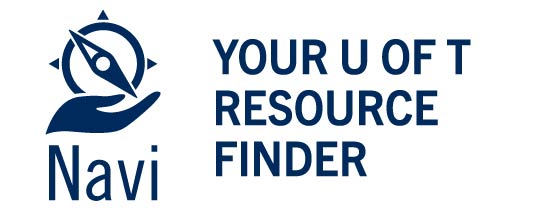Pre-Arrival
Congratulations and welcome to the University of Toronto!
We’ve prepared a checklist to help you start your journey at U of T. Whether you’re starting your studies in your home country or here in Toronto, we’ve got you covered!

How to get a study permit and what to expect when entering Canada.
Understand your health insurance as an International student.
Find resources for parents and guardians of incoming students on the Parents & Supporters website.
Ensure your immunizations are up to date
The Public Health Agency of Canada recommends that you’re vaccinated for specific illnesses as a visitor to Canada. Find out more about these recommended vaccinations.
If you can’t get immunized before arriving in Canada, please visit Health & Wellness when you arrive to discuss vaccination.
Learn about course selection
You’ll be assigned a start time for course selection depending on your faculty and year of study. Your start time for enrolment will be posted on your ACORN account in early July. If you have questions about the course selection process, contact your Registrar’s Office.
Pay tuition online
Your final tuition amount will be posted on your ACORN account. Follow the instructions for payment.
Refer to this guide if you need help using ACORN.
The Student Accounts website has an annual schedule of due dates and instructions on how to make a fee payment from outside Canada.
If you must pay tuition fees for your first year before the fees are billed (fall-winter session fees are billed in mid-July) as part of a student visa application process (e.g. Student Direct Stream program), the estimated tuition fee amount will be displayed on your admissions offer and on the Finances card on the ACORN dashboard.
Get your UTORid and student number online
A UTORid is an eight-character, alphanumeric identification that allows you to access various U of T online programs and services.
Your student number is 10-digit number, and is your U of T student ID.
Both your student number and your UTORid are printed on your TCard
You won’t be able to get your TCard until you’re physically on campus, but you can obtain a UTORid, email address and virtual TCard by appointment.
Visit the TCard website for more information.
Learn about online learning tools
Throughout your studies at U of T, you’ll be using various online tools. Your instructors will provide guidance on how to use these tools in each course. These tools include:
- Getting Ready for Online: Tips and strategies for successful online learning
- Quercus: U of T’s main online learning environment, which has its own student guide
Learn about academic supports
You may find the academic culture at U of T to be different from your previous experiences in terms of teaching styles, learning styles and expectations.
U of T’s academic culture encourages independence and self-exploration, where asking questions is encouraged and expected in many contexts.
Students are responsible for finding the information they need and for advocating for themselves.
You will find some key resources below to help you get started:
- Registrar’s Office: Your main source of academic and financial advising
- Important dates: Know the deadlines specific to your faculty or academic unit
- Centre for Learning Strategy Support: Reach your highest learning potential
- Writing centres: Get help with your writing from a trained writing instructor
- Graduate Centre for Academic Communication: Advance training in academic writing and speaking for graduate students
- Academic integrity: Resources to help you act with honesty and responsibility in all academic matters
- International Students: Stories and Strategies for Academic Success in Postsecondary Education (PDF)
Explore your housing options in Toronto
There are a few housing options to consider:
- living in residence as a first-year undergraduate, graduate or student with a family, or
- finding off-campus housing or temporary short-term accommodations.
The University of Toronto’s Housing Services can help you explore all your options with an amazing housing resource library, housing databases and housing advice and support.
Prepare for Toronto’s climate
Toronto’s climate ranges from near-tropical in the summer (up to 35° C), to very cold in the winter (sometimes as low as –20° C). You will need different kinds of clothing to stay comfortable all year round.
Top tips:
- Winter (Dec.-Feb.): a warm winter coat, boots, and gloves
- Summer (June-Aug.): lightweight clothing (such as cotton) is good
- Spring (March-May) and fall (Sept.-Nov.): sweaters and a lightweight waterproof coat
- Canadian students tend to dress casually for most occasions
- Dressing for the weather is socially acceptable!
Stay safe and get around in Toronto
Toronto is often ranked as one as the safest cities in North America. It’s good to familiarize yourself with safety services available:
Safety on campus and in Toronto:
- Campus Safety (U of T)
- Community Safety Office (U of T)
- Sexual Violence Prevention & Support Centre (UofT)
- Public safety services
- Emergency services
There are also many ways to travel around the city:
- Toronto Transit Commission (TTC) – learn more about reduced student fares and Presto cards
- By bike, ride share services, or taxi
- Driving – learn how to get a new license or exchange your license
- GO Transit if you are headed outside the city of Toronto
Find support as a student with children
Be sure to connect with U of T’s Family Care Office for all the info and support you may need.
You can also check out this online community for student parents.
Pack your bags
If you’ll be living in residence, check with Housing Services to learn about what you’ll need for your room. You can purchase big items near campus to avoid taking up space in your suitcase.
For clothing, you’ll want items for a wide range of temperatures. If you don’t already own winter items, you may want to wait and buy them in Toronto.
Make sure to make copies of your important documents and carry the originals with you in your carry-on luggage:
- Passport
- Temporary Residence Visa (TRV) or Electronic Travel Authorization (eTA) (if required)
- Port of Entry (POE) Letter of Introduction from Immigration Refugees and Citizenship Canada (IRCC) – Don’t forget to show this to get your Study Permit at the airport!
- Letter of Acceptance from the University of Toronto
- Proof that you have enough money to support yourself during your stay in Canada
- Immunization record
